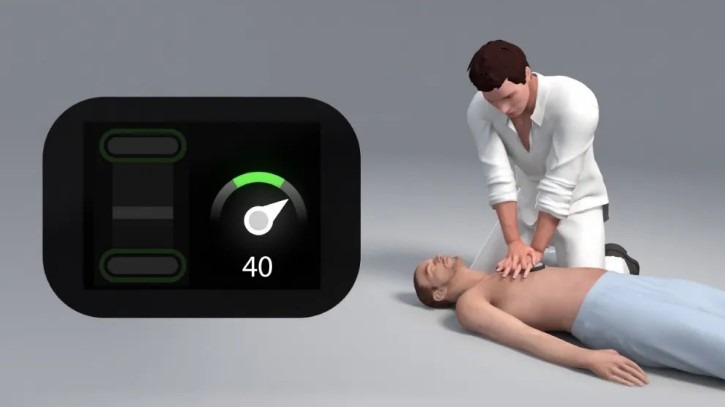Hypothyroidism vs. Hyperthyroidism: What’s the Difference?

The thyroid is the control center of your body. This gland, located at the base of your neck, is responsible for the rate at which every organ and cell turn nutrients into energy. Moreover, it helps you metabolize proteins, fats, and carbohydrates and helps you maintain your body temperature, heart rate, and blood pressure. Thus, the thyroid plays a significant role in your growth and development.
So when your thyroid isn’t functioning well, your growth could also go awry. As a result, your body could experience two conditions: an overactive or underactive gland. Likewise, although these two conditions exist in the thyroid, they affect the body differently. So if you want to know the differences between both, continue reading below:
Symptoms
An underactive thyroid gland or hypothyroidism means your thyroid isn’t producing the right amount of certain hormones your body needs. Moreover, you’ll experience constipation, fatigue, weight gain, dry skin, hair loss, decreased sweating, cold sensitivity, slow heart rate, and forgetfulness.
An underactive thyroid means your hormone production slows, impeding your metabolism, which makes you gain weight, feel more tired than usual, and unable to tolerate cold temperatures. Moreover, a person with an underactive gland feels so tired that they stop exercising, change their routine, and sleep more.
In contrast, hyperthyroidism means your body’s processes and metabolism is sped up. This condition means that your heart may develop irregular rhythms, you have high blood pressure, frequent bowel movements, or even feel hotter quickly.
With hyperthyroidism, symptoms include fatigue, feeling extra warm, diarrhea, weight loss, increased sweating, hair loss, nail thickening, pounding heart, muscle weakness, and anxiety or nervousness. In addition, weight loss in hyperthyroidism is commonly associated with constant fatigue due to poor absorption of nutrients.
Causes
Autoimmune diseases most commonly cause an underactive gland — one of which is Hashimoto’s thyroiditis. This autoimmune disorder is the most common cause in the United States. This disorder involves an inflammation of the thyroid gland, resulting in its gradual impairment and an underactive thyroid.
Other underactive thyroid causes include an over–response to hyperthyroidism treatment, thyroid surgery, and medications. Treatment for people with hyperthyroidism often comes in radioactive iodine medications. With such, correcting hyperthyroidism can often end up lowering hormone production too much. Removing a large portion of your thyroid and taking lithium medication can also affect hormone production.
On the other hand, hyperthyroidism is most commonly caused by Graves’ disease. Classified as an autoimmune disease, Grave’s disease makes your body view your thyroid as a foreign body and ultimately attacks it. As a countermeasure, the thyroid gland grows and releases too many hormones.
Additionally, abnormal growths of your thyroid gland can cause an abnormality in hormone secretion. Taking too much thyroid medication for an underactive thyroid gland can also lead to hyperthyroidism.
Complications
If an underactive or overactive thyroid is left untreated, it may lead to severe complications. For an underactive thyroid, you may develop a goiter that feels like a massive lump in the base of your neck. Goiters are tender and swollen; in rare cases, they can cause complications when swallowing or breathing.
Another complication would be peripheral neuropathy or nerve damage. In addition, severe and untreated underactive thyroid could cause fluid retention, resulting in swollen tissues. Other complications of an underactive thyroid include pregnancy problems, muscle diseases, and high cholesterol.
Hyperthyroidism has complications similar to an underactive thyroid, which is goiter and pregnancy problems. However, pregnancy with hyperthyroidism could be at risk for neonatal hyperthyroidism. Such neonatal disease happens to be a Graves disease passed from a mother to her infant.
Additionally, hyperthyroidism could cause complications in your bones which could cause osteoporosis – ultimately making you weak to fractures. Atrial fibrillation, an abnormal heart rhythm that could lead to a stroke, is another complication of an overactive gland too.
One could potentially develop a thyroid storm if there is a combination of untreated hyperthyroidism and infection, trauma, or surgery. This hypermetabolic state includes a fast heart rate, agitation, delirium, diarrhea, high fever, and even decreased consciousness.
Treatment
You can’t cure an underactive thyroid, but you can manage it with medication. A synthetic thyroxine pill will be your primary treatment for a person with an underactive thyroid. This pill will build the natural thyroid hormones in your body, restoring the proper functioning of your bodily systems.
In addition, this pill is taken on an empty stomach first thing in the morning. Your doctor should also be the one to select your dosage concerning your weight and age. They should also be responsible for monitoring your thyroid-stimulating hormone to see if there are any changes.
With hyperthyroidism, treatment immediately starts with its symptoms. Here, your doctor could prescribe beta-blockers like propranolol, atenolol, and nadolol to aid your symptoms. These drugs can decrease tremors, slow heart rate, and improve irritability.
Other treatments for hyperthyroidism depend on its cause. For example, your doctor could prescribe an antithyroid drug to block your hormone production. If you’re pregnant, you might be prescribed propylthiouracil to lower how much your thyroid produces hormones. Doing so will decrease any risks to the fetus. Lastly, if the medication doesn’t work, your options could be surgery or destroying thyroid cells with radioactive iodine.
Final Thoughts
Having an underactive and an overactive thyroid dramatically varies. An underactive one means you’ll need to maintain medication in your lifetime, while an overactive one could work with medications or surgery. Nonetheless, you should monitor a thyroid disease with your doctor to keep your hormones at favorable levels. Moreover, ensuring your thyroid gland is healthy and working efficiently with the help of your healthcare provider should be your number one priority.





